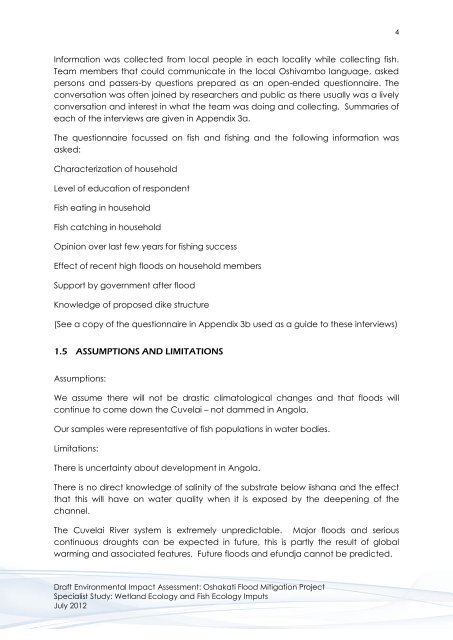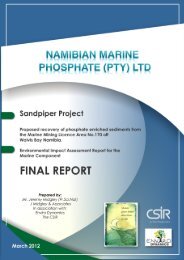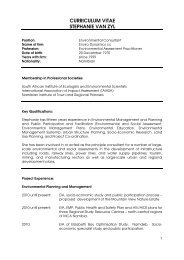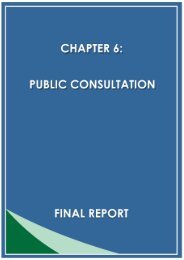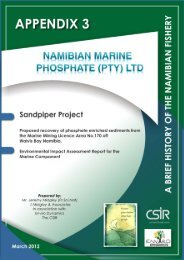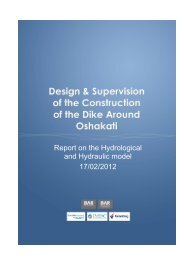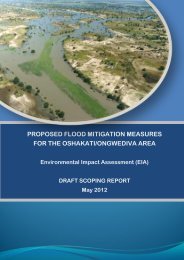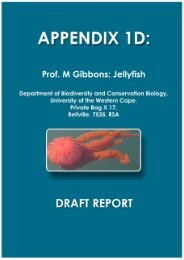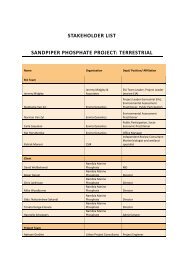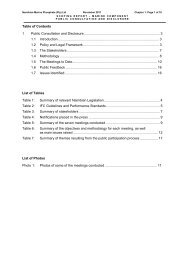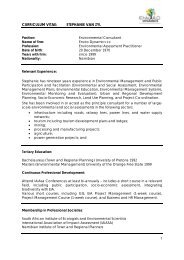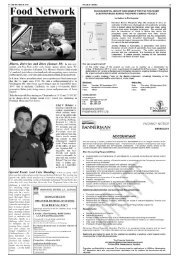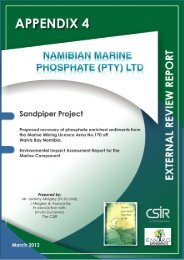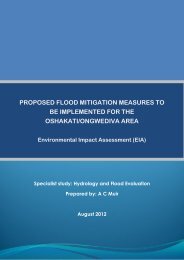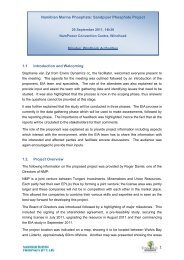Wetland & Fish Ecology - Enviro Dynamics Namibia
Wetland & Fish Ecology - Enviro Dynamics Namibia
Wetland & Fish Ecology - Enviro Dynamics Namibia
Create successful ePaper yourself
Turn your PDF publications into a flip-book with our unique Google optimized e-Paper software.
4<br />
Information was collected from local people in each locality while collecting fish.<br />
Team members that could communicate in the local Oshivambo language, asked<br />
persons and passers-by questions prepared as an open-ended questionnaire. The<br />
conversation was often joined by researchers and public as there usually was a lively<br />
conversation and interest in what the team was doing and collecting. Summaries of<br />
each of the interviews are given in Appendix 3a.<br />
The questionnaire focussed on fish and fishing and the following information was<br />
asked:<br />
Characterization of household<br />
Level of education of respondent<br />
<strong>Fish</strong> eating in household<br />
<strong>Fish</strong> catching in household<br />
Opinion over last few years for fishing success<br />
Effect of recent high floods on household members<br />
Support by government after flood<br />
Knowledge of proposed dike structure<br />
(See a copy of the questionnaire in Appendix 3b used as a guide to these interviews)<br />
1.5 ASSUMPTIONS AND LIMITATIONS<br />
Assumptions:<br />
We assume there will not be drastic climatological changes and that floods will<br />
continue to come down the Cuvelai – not dammed in Angola.<br />
Our samples were representative of fish populations in water bodies.<br />
Limitations:<br />
There is uncertainty about development in Angola.<br />
There is no direct knowledge of salinity of the substrate below iishana and the effect<br />
that this will have on water quality when it is exposed by the deepening of the<br />
channel.<br />
The Cuvelai River system is extremely unpredictable. Major floods and serious<br />
continuous droughts can be expected in future, this is partly the result of global<br />
warming and associated features. Future floods and efundja cannot be predicted.<br />
Draft <strong>Enviro</strong>nmental Impact Assessment: Oshakati Flood Mitigation Project<br />
Specialist Study: <strong>Wetland</strong> <strong>Ecology</strong> and <strong>Fish</strong> <strong>Ecology</strong> Imputs<br />
July 2012


